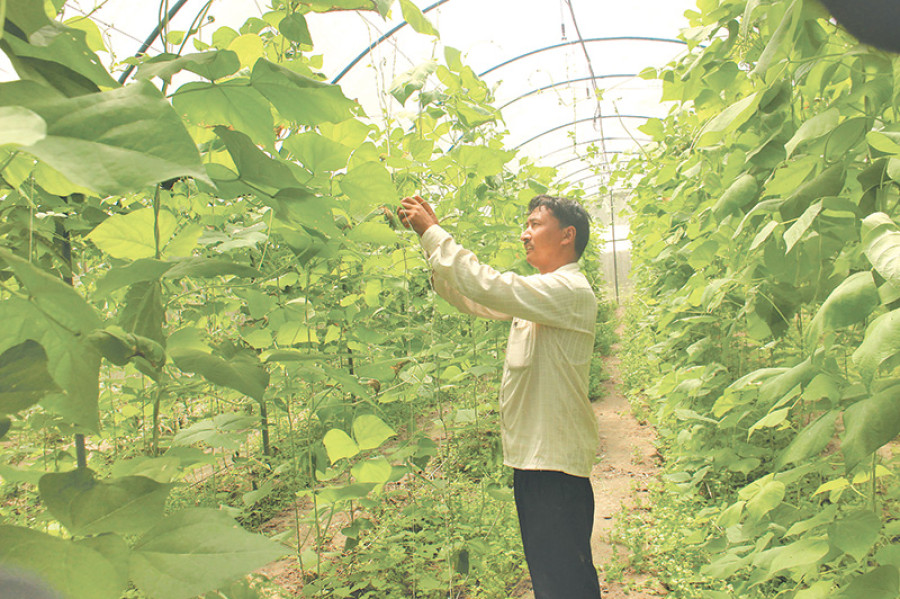Money
Plastic tunnel farming takes off in Parbat
The practice of growing off-season vegetables using plastic tunnels has been gaining popularity in Parbat due to its higher productivity and income as compared to traditional practices of crops production outdoors.
Agandhar Tiwari
The practice of growing off-season vegetables using plastic tunnels has been gaining popularity in Parbat due to its higher productivity and income as compared to traditional practices of crops production outdoors.
Lal Bahadur Harijan, a farmer in Modi-5, Ambot has been earning Rs220,000 monthly by selling off-season vegetables grown in plastic tunnels. He has invested Rs1 million to prepare 10 tunnel farms on 15 ropanis of land. Harijan, who has been involved in vegetables production for five years decided to adopt high-tech tunnel farming techniques last October. In the first season, the new farming technique gave him three times better income compared to what he had been earning before. As a pilot project, he started vegetable cultivation on two tunnel farms. “The investment made in tunnel farming was recovered after the first season,” he said. Plastic tunnels are small greenhouse-like structures, covering the plants. These tunnels are erected with bamboo and covered with clear plastic.
Another farmer Bhim Lal Poudel of Kushma-2, Khurkot has been cultivating vegetables in plastic tunnels since April. Poudel initially grew cucumber and took home Rs150,000. Then he started cultivation of off-seasonal radish and beans and earned Rs60,000.
Temperatures in plastic tunnels are more constant than outdoor temperatures. Apart from keeping the temperature constant, plastic tunnel farming has many benefits for growing plants. It manages pest, harvest quality, and yield. “Vegetables can be grown with bumper yields and promising earnings as this technique requires smaller areas of land,” said Poudel. There are more than a dozen farmers adopting the tunnel farming, said District Agriculture Office. “The tunnel farm has also health benefit,” said Basu Dev Regmi, senior agriculture development officer. When growing crops in tunnels it reduces the total amount of pesticides applied to plants compared to those grown outdoors.
It rewards farmers with early harvests compared to vegetables grown outdoors. Drip irrigation is used effectively for watering plants in tunnels. In drip irrigation, water is efficiently and precisely delivered to the plant at its root zone. “In general, drip irrigation, pest management and fertilising method makes higher yields with better quality than those grown outdoors,” said Regmi.
Farmers can grow many types of vegetables, herbs, cut flowers, small fruit, and even tree fruits in tunnels. Off-seasonal vegetable crops like cauliflower, cabbage, carrots, radishes, cucumber and tomatoes are mostly cultivated inside the tunnel.




 14.24°C Kathmandu
14.24°C Kathmandu.jpg)















